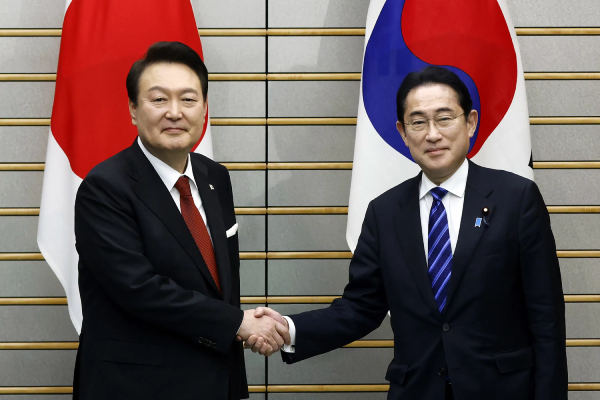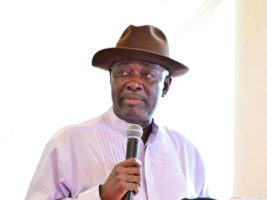South Korean and Japanese leaders have vowed to cooperate to address regional security issues.
At a summit between Yoon Suk Yeol of South Korea and Fumio Kishida of Japan on Thursday in Tokyo—the first visit to Japan by a South Korean president in 12 years—both leaders pledged to put years of hostility behind them.
Washington hailed the summit, calling Japan and South Korea “indispensable allies”.
“Improved ties between Seoul and Tokyo will help us embrace trilateral opportunities to advance our common regional and international priorities, including our vision for a free and open Indo-Pacific,” a State Department spokesperson said.
Seoul-Tokyo tensions have long undercut U.S.-led efforts to present a united front against China and North Korea.
The relationship has been strained by a dispute over wartime history, including over the compensation of South Koreans forced to work under Japan’s 1910-1945 occupation, as well as the issue of women and girls forced into Japanese military brothels.
Read Also
The urgency of the regional security situation – and the threat posed by North Korea – were underscored hours before Yoon’s arrival, when North Korea fired an intercontinental ballistic missile that landed in the sea between the Korean peninsula and Japan.
The two countries agreed to drop an almost four-year trade dispute on some high-tech materials used for chips, something that dogged their relationship even as the political importance of semiconductors, and securing their supply, has increased.
They also agreed to revive regular bilateral visits and to restart a security dialogue suspended since 2018.
Yoon also declared a “complete normalisation” of an intelligence-sharing pact, known as GSOMIA, which Seoul threatened to pull out of in 2019.
He added that North Korea’s missile launch had shown a “grave threat” to international peace and stability.
The attempt for closer ties brought a rebuke from China, whose foreign ministry said it opposed the attempt by certain countries to form exclusive circles.





